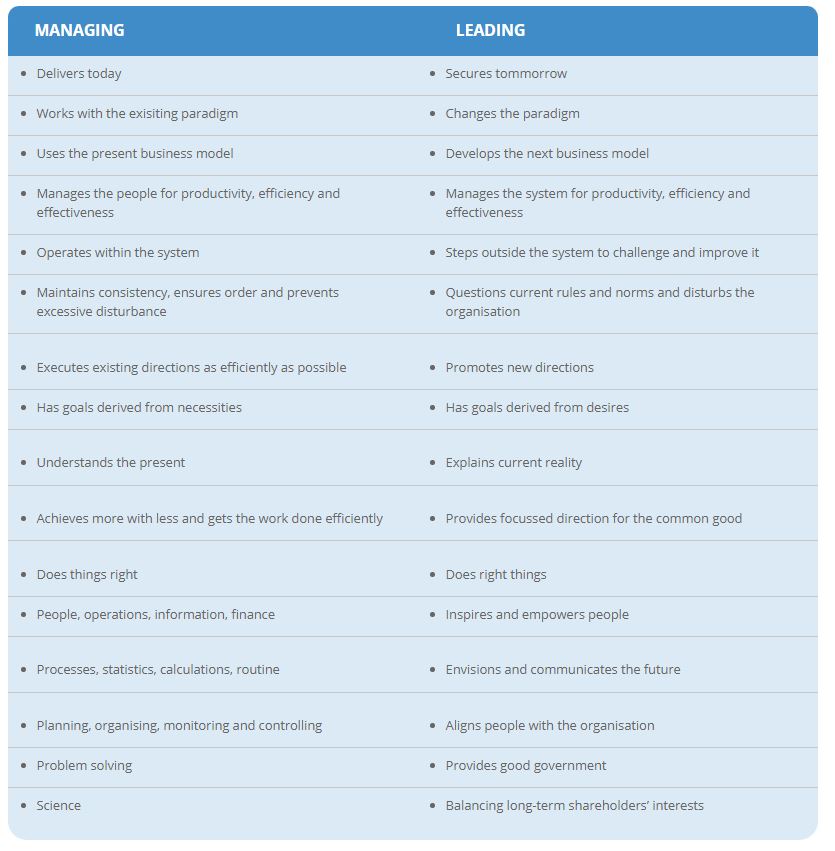
Managing versus leading
But some others, including some professional institutes, meld managing and leading; they make the mistake of concentrating on personality traits (e.g. ‘is inspiring’). Since organisations want both managers and leaders to be inspiring, they see little difference between managing and leading and they try to contrive trait difference.
But there is a second point. The managers and leaders are the same person, sometimes managing and sometimes leading. This is irrespective of their place in the hierarchy. And we need to know what we want those managers to achieve at a given time. Just as an example, do we want them to calm things down or to shake things up? Do we want them to meet today’s operational deadline or to make things work better for tomorrow? It is in areas like this where the important differences lie.
MANAGING
LEADING
- Delivers today
- Secures tommorrow
- Works with the exisiting paradigm
- Changes the paradigm
- Uses the present business model
- Develops the next business model
- Manages the people for productivity, efficiency and effectiveness
- Manages the system for productivity, efficiency and effectiveness
- Operates within the system
- Steps outside the system to challenge and improve it
- Maintains consistency, ensures order and prevents excessive disturbance
- Questions current rules and norms and disturbs the organisation
- Executes existing directions as efficiently as possible
- Promotes new directions
- Has goals derived from necessities
- Has goals derived from desires
- Understands the present
- Explains current reality
- Achieves more with less and gets the work done efficiently
- Provides focussed direction for the common good
- Does things right
- Does right things
- People, operations, information, finance
- Inspires and empowers people
- Processes, statistics, calculations, routine
- Envisions and communicates the future
- Planning, organising, monitoring and controlling
- Aligns people with the organisation
- Problem solving
- Provides good government
- Science
- Balancing long-term shareholders’ interests

